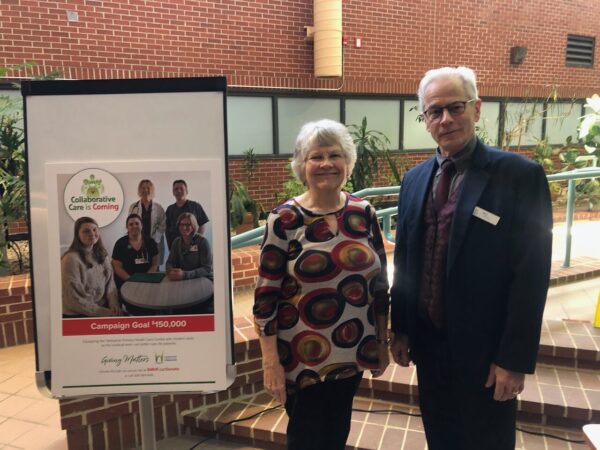
For years the Southeast Regional Service Commission, as ECO 360, has been handling the disposal of the region’s garbage, compost, and recycling. But until now, the collection of all that waste has been handled by individual municipalities.
That will change in February of next year, when the commisson will take over collection of blue, green and clear bags throughout the southeast region.
At a special meeting on August 15, Tantramar council voted to approve an agreement with the commission, to allow them to proceed with contracts for collection in 2025.
Tantramar’s public works director Jon Eppell told council that the province’s forced amalgamation of municipalities in 2023, as well as major cost increases in the garbage collection industry, precipitated the move to have the commission take on the role.
After amalgamation in January 2023, the municipality found itself with multiple waste collection contracts, and mounting costs. Last year’s budget saw a 33.6% increase in collection costs, and a similar hike was in the cards for 2025. “A regional solution was very desirable,” Eppell told council on August 15. “It was a means by which we could create more attractive packages for waste collection and thereby minimize the cost… So we approached Southeast Regional Service Commission, and they expressed a willingness to take it on.”
The commission is setting up contracts in two zones, with Tantramar part of a zone along with Shediac, Cap-Acadie, Strait Shores, and Memramcook. Each municipality will share the cost of the contract, and also pay an annual management fee of $6.60 per household to the commission.
Being part of a larger zone contract means that garbage schedules and routes may not align with municipal units, said Eppell, but rather according to what makes the most sense for the companies taking on the contracts. “We are not saying that [contractors] have to collect Tantramar on particular days, or that [their] route cannot span from Tantramar into Strait Shores,” said Eppell. “We’re allowing the service providers to optimize in the effort of trying to keep prices down.”
Keeping prices down has been a focus, because costs for garbage collection were expected to soar more than 30% this year, with companies passing along major increases in vehicle and fuel costs. But as Eppell told councillors, the transition to producer responsibility for blue bag collection and disposal, through the industry consortium Circular Materials, means the expected rise in Tantramar’s costs will be offset by those savings.
Circular Materials will contribute $29.87 per household for the collection of blue bags, said Eppell, which brings down the expected increase to around 9%. “Then we are expecting some further reductions, because Southeast Regional will receive some subsidies from Circular Materials as well for waste disposal,” said Eppell. “We’re expecting that will bring our costs for waste collection and disposal in 2025 to just about even with what it is in 2024.”
In 2026 and beyond, Eppell said increases of 3% per year are expected. He also pointed out that the new contracts will include provisions to split the risk of increased fuel costs over the years.
Besides possible changes to scheduling and pick up routes, there’s another big change coming in 2025: no more spring and fall clean up days. Instead, residents will be permitted to put out one bulky item every two weeks along with their garbage pick up. Councillor Barry Hicks noted at a previous meeting that could be a concern in Sackville where the spring cleanup often coincides with the turnover in student rentals in town. Eppell echoed that concern on August 15.
“We usually see a great deal of students shifting in, and a lot of waste coming out,” said Eppell. “I think that we will need to do some targeted communications with Mount A, the students, and with landlords, because at the end of the day, this is a landlord responsibility.”
Council unanimously approved the new agreement last week, which means changes will come into effect on February 1. Eppell told council that details on any changes to schedules and routes would be known ”optimistically, by the end of September,” and so with plenty of time to inform residents before changes kick in in February.



















